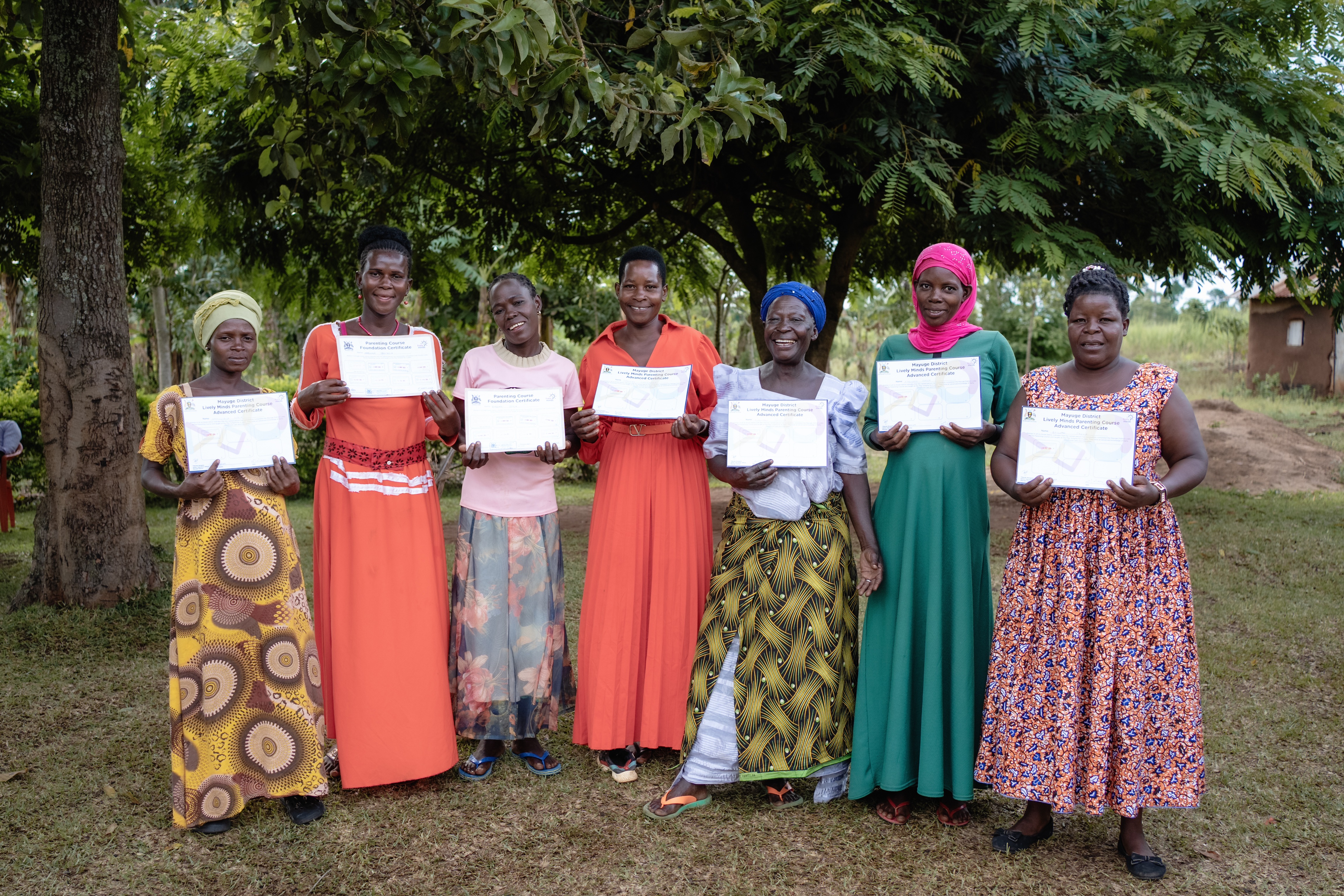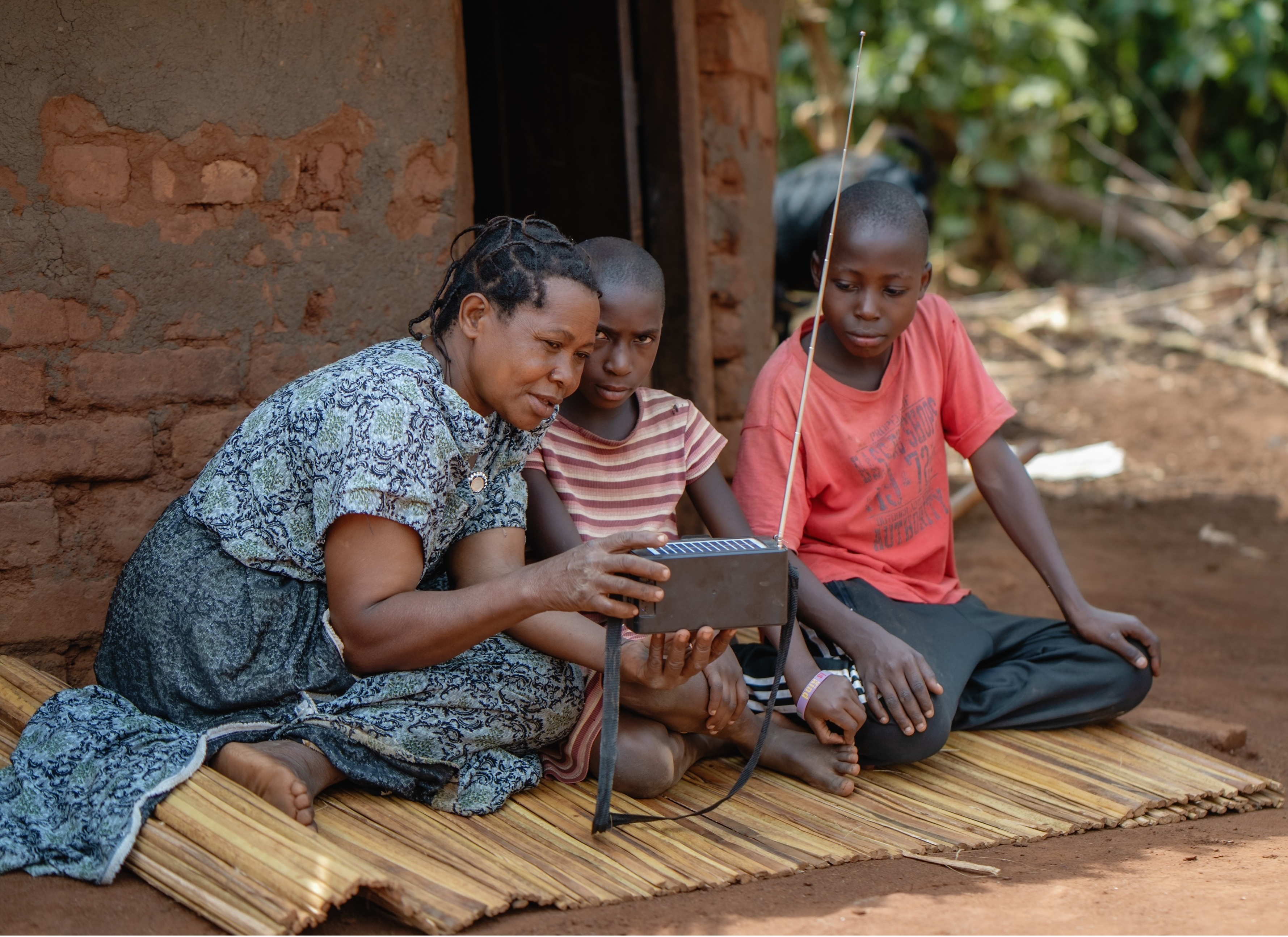
Our Work
A staggering 250 million children globally miss out on early childhood development, the majority of whom live in rural communities in the Global South.


Activate parents. Strengthen early childhood development.
Examples of our solutions

Mothers are trained by community trainers to run free educational play groups for the children in their communities. These can take place in and strengthen kindergartens where these exist or bridge the gap where there is no formal pre-primary. They improve children’s learning, hygiene, and socio-emotional skills as well as boost empowerment and wellbeing of the mothers.

Community trainers provide regular workshops to parents in their community using scripted lesson plans. These teach fun activities proven to strengthen whole-child development and can be easily incorporated into household routines for no cost.

Government staff are trained to broadcast radio episodes for parents using scripted lesson plans. These provide parents with practical information and ideas proven to improve the nurturing care and learning they give their children, as well as improve their own confidence and wellbeing. This is a great solution for governments without pre-primary or with limited training and supervision systems.
.jpg)
Pre-primary teachers are trained to understand the value of play-based, child-centred learning. They are given practical guidance on making and using simple learning resources and on applying play-based approaches effectively in large classes.



.jpg)

